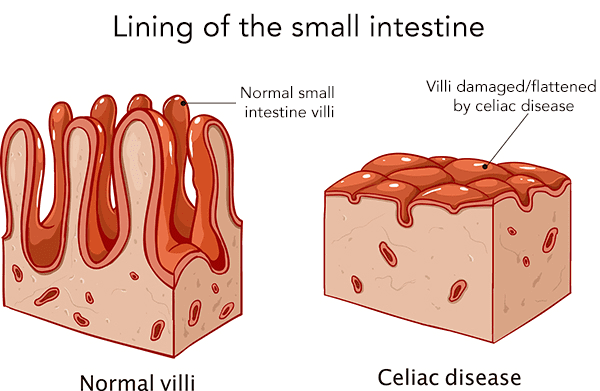
Register now. A nationwide study published through the American Heart Association found a moderate but not statistically significant prevalence of dilated cardiomyopathy in patients with biopsy-confirmed celiac disease. This is because the alternatives to gluten used in these products — like tapioca and potato starch — can be even more inflammatory than gluten. Current studies indicate no elevated risk of melanoma for patients with celiac disease. Bummer, right?
Is there a link between gluten, a protein found in wheat, barley and rye, and autoimmune diseases such as type 1 diabetes? Worldwide, but especially in the developed world, the incidence of autoimmune diseases are on the rise. One of these diseases is coeliac disease or gluten-sensitivity enteropathy — an autoimmune disorder in which the immune system overreacts by producing antibodies when you eat gluten.
Printer Friendly Version. People who have celiac disease or dermatitis herpetiformis celiac disease which manifests as a skin rash are at greater risk than the general population for developing one or more associated autoimmune diseases. These disorders share common genetic and immunological linkages with celiac disease. The autoimmune conditions most associated with celiac disease are type 1 diabetes and autoimmune thyroid disease. The tendency to develop autoimmune diseases is believed to be genetically influenced. In an autoimmune disorder, the cells of the immune system produce antibodies and other cellular products that begin to react against normal, healthy tissue, causing inflammation and damage. This is not a complete listing of autoimmune diseases associated with celiac disease. Anyone who has unexplained, persistent, or recurring symptoms should consult a qualified physician for an evaluation.
Cassie says: So much of. Celiac disease is more frequent in those who have the following autoimmune disorders.
